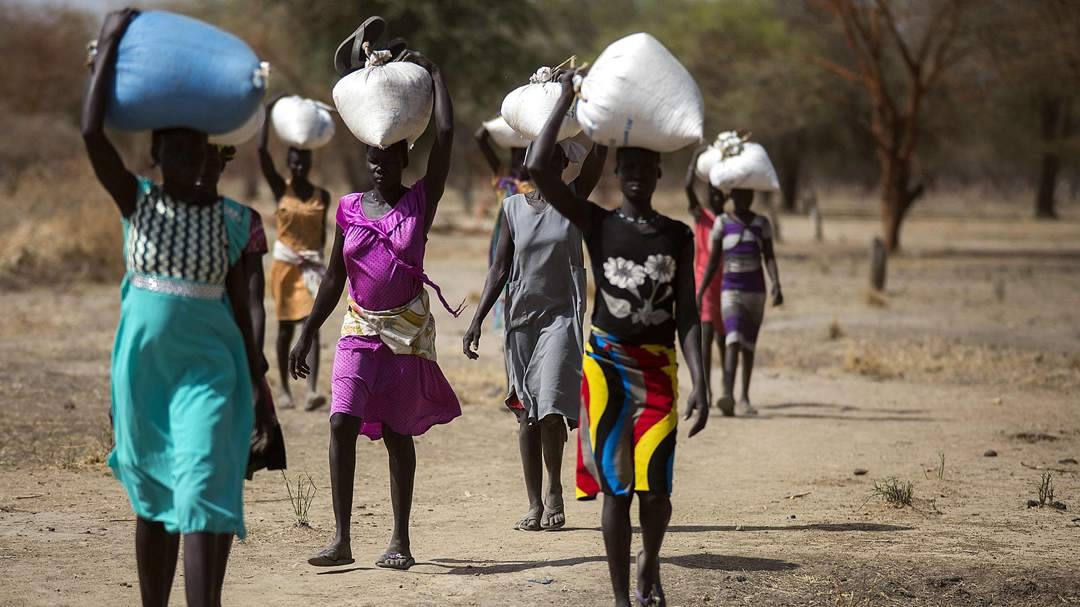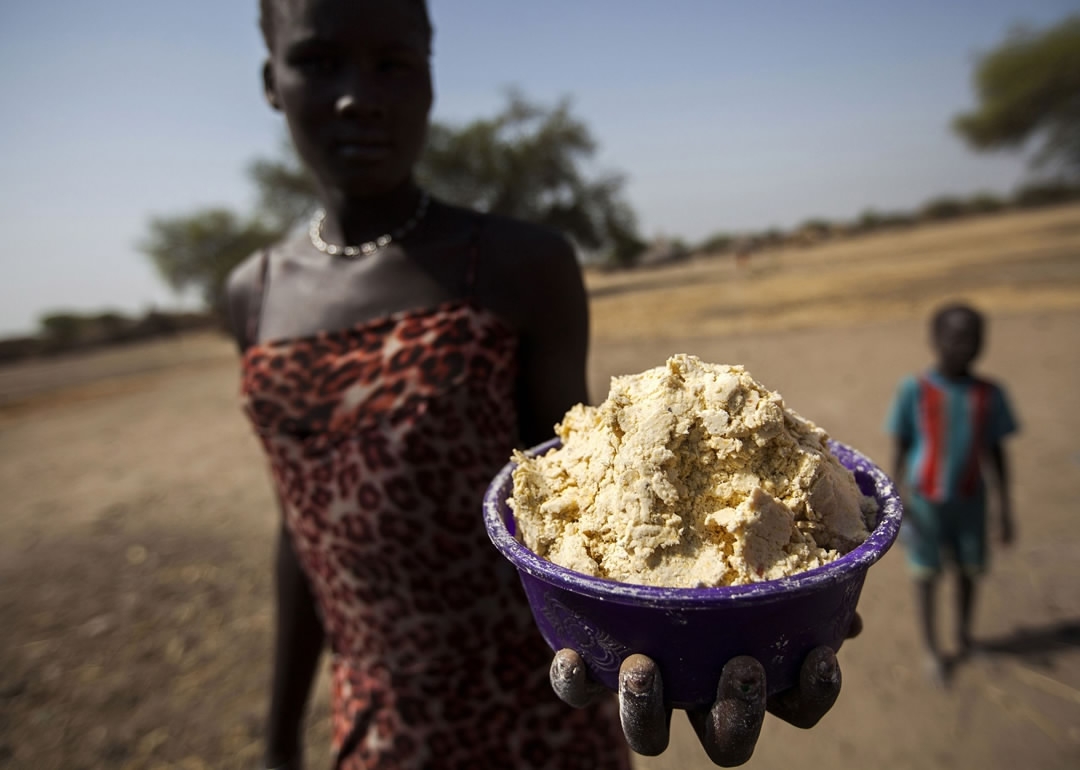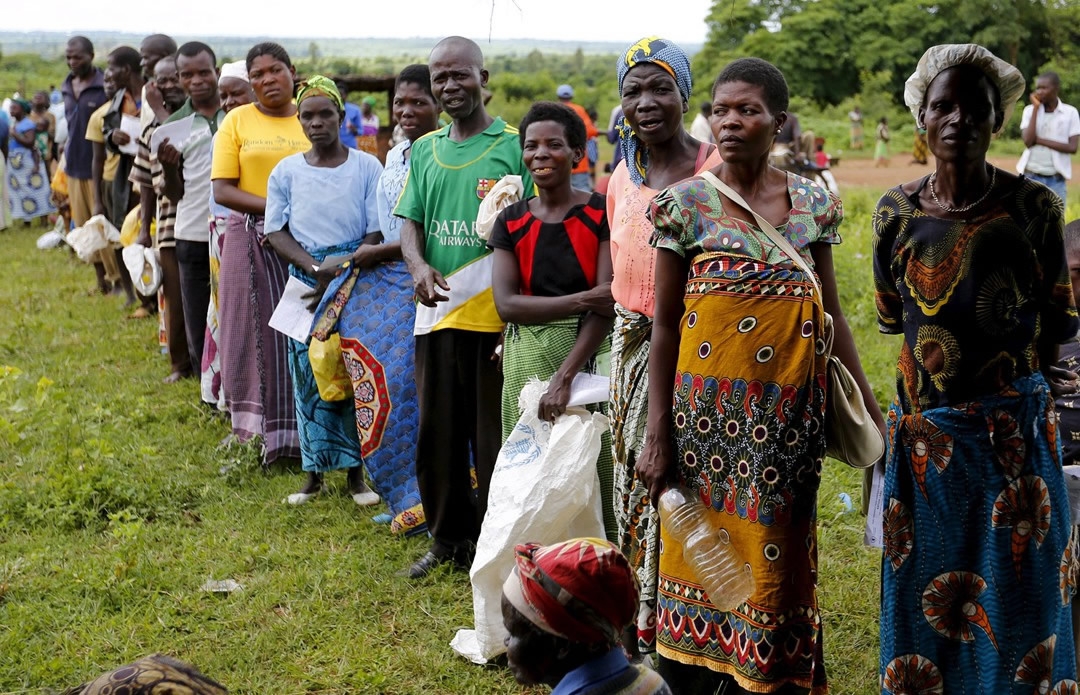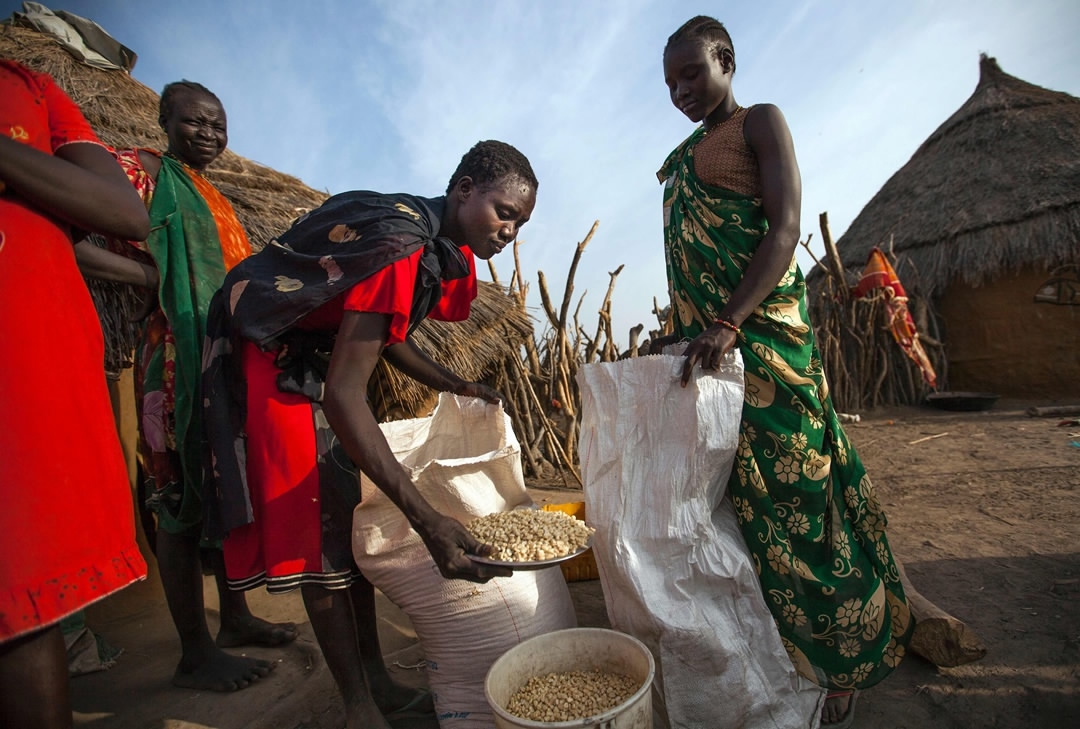
China
20:50, 02-Jul-2017
Over half African nations battling with 'serious' hunger level, says report

A report revealed on Sunday that 28 African nations, accounting for over half of the African Union's (AU) 55 member states, still fall into the "serious" category in terms of hunger level.

A woman holds out a bowl of partially boiled maize in Ngop in South Sudan's Unity State on March 10, 2017. /VCG Photo
A woman holds out a bowl of partially boiled maize in Ngop in South Sudan's Unity State on March 10, 2017. /VCG Photo
The Global Hunger Index Africa Edition report, launched in Ethiopia's capital Addis Ababa, said that despite a reduction of hunger level on the continent since 2000, the level of hunger in many countries remains "unacceptably high" based on its scoring on 42 African countries where data could be calculated.
The hunger index is classified into five grades in severity scale, including low, moderate, serious, alarming, and extremely alarming.
Only three African countries on the continent, namely Tunisia, Algeria, and Morocco have achieved a low level of hunger, while 28 countries fall under the "serious level of hunger", and five countries under "alarming" categories, which include Sierra Leone, Madagascar, Zambia, Chad, and Central African Republic.

Malawians queue for food aid distributed by the United Nations World Food Progamme (WFP) in Mzumazi village near the capital Lilongwe, February 3, 2016. /VCG Photo
Malawians queue for food aid distributed by the United Nations World Food Progamme (WFP) in Mzumazi village near the capital Lilongwe, February 3, 2016. /VCG Photo
The report, released by the AU's implementing agency New Partnership for Africa's Development (NEPAD) together with other partners, said Burundi, Comoros, DR Congo, Eritrea, Libya, Somalia, South Sudan, and Sudan are countries with insufficient data for assessing hunger and malnutrition levels.
In 2014, AU heads of states reached a decision, dubbed Malabo Declaration, to accelerate Africa's agriculture growth and transformation, with targets among others to end hunger by 2025.
Going by historical trends and projections, it is highly unlikely that the Malabo declaration target of eradicating hunger will be realized by 2025, noted the report.
Speaking during the launch of the report, Ibrahim Assane Mayaki, NEPAD Chief Executive Officer, underlined the need to accelerate the progress on addressing malnutrition and hunger in Africa.

A group of women share maize distributed as food aid in Ngop in South Sudan's Unity State on March 10, 2017. /VCG Photo
A group of women share maize distributed as food aid in Ngop in South Sudan's Unity State on March 10, 2017. /VCG Photo
The report called upon African countries to take measures such as integrating actions with national agriculture investment plans, improving supporting facilities to prevent food loss and enhancing infrastructure to boost trade.
The report noted that the cost of reactive malnutrition measures is high, for example Malawi is spending up to 10 percent of its gross domestic product, on addressing the effects of malnutrition.
(Source: Xinhua)
8325km

SITEMAP
Copyright © 2018 CGTN. Beijing ICP prepared NO.16065310-3
Copyright © 2018 CGTN. Beijing ICP prepared NO.16065310-3